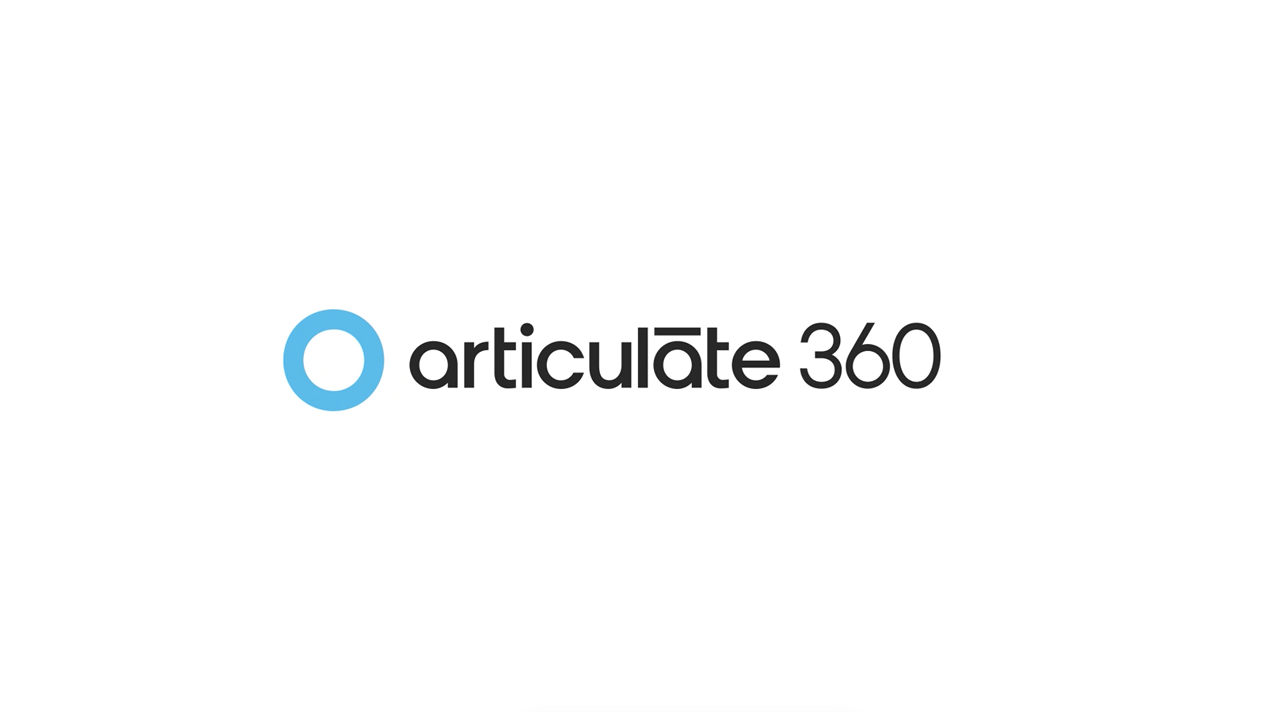Articulate Localization
– translate, validate and manage eLearning for your global team
Localize your content without ever having to leave Articulate 360


Now there are 70+ more reasons to love Articulate 360
Higher quality – Your localization process is about to become a high-quality, smooth and positive experience.
One workflow – With localization integrated into Articulate 360, you can remove several steps and reduce human errors, while completing the entire process in a very short time.
Global reach – Articulate Localization will help you make your courses more accessible and relevant for different target groups, wherever they may be.
Want us to show you?

AI-translation
Value pillars
Articulate Localization helps you upskill your global learners more quickly and efficiently.
You can also contact your Articulate 360 admin to start a free trial of Localization.
Top features of Articulate Localization
- Translate in seconds. Convert courses into 70+ languages from within Rise and Storyline. Easy handling of right-to-left content.
- Validate translations, fast. Give language validators the power to edit translations themselves – while authors stay in control of approval.
- One workflow. View, manage and publish as one course – no matter how many languages you have.
- Keep your content safe. Rest easy with our zero data retention AI policy, robust security practices and advanced encryption.

Behind the scenes
“Articulate Localization is a game changer!”
Anna Helmbold is Senior Scriptwriter at TicTac and has spearheaded a vast number of translation projects for our clients. Are you also curious to hear her views on localization of eLearning?
TicTac has assisted hundreds of clients with their translation projects. What’s that been like?




So, the big question – what does Articulate Localization mean for the translation process?

If we backtrack a bit, what’s the starting point when looking at localizing an eLearning course?



Sounds great – thanks for chatting!
Your success is our mission
We’re not just partners of Articulate – we’re your partner as well. We’d be excited to give you a presentation!

Buy it or try it
Develop high-quality localized courses seamlessly with a localization solution integrated right into Articulate’s unparalleled authoring platform.
We’ve got the resources you need to become fluent in AI

Events
Check out our long list of upcoming webinars – all free of charge.

Training & Workshops
Find out what we have on offer for you or your team – on-site, online or on your own.

Whitepapers
Browse our whitepapers for new knowledge.
Still hesitant?
A few quick answers
The glossary will help ensure correct and approved terminology and language are used in translations. You can specify how certain words or phrases should be translated, but also if certain words or phrases should not be translated.While AI translation will automatically aim to match the tone of voice in the original language, creators can select their desired formality level. This covers for instance the use of different pronouns (e.g. in Spanish, the use of “usted” vs. “tu” for formal vs. informal “you”).
Admins can track their billable translations (translations that count toward their purchased quantity) and see the total translations in their annual usage tier in the Manage Subscription dashboard.For now, customers are not able to track more detailed usage in the dashboard (e.g. how many translations each individual user ran).
We recommend using closed captions, as those are text and will be translated in Storyline and Rise.
Creators can publish courses to Review and use the standard Request Review to request language validation.Language validators do not need an Articulate 360 seat – similar to other Review items, all they need is an email address. Validators can suggest text changes and preview those changes in real time.Once a validator has finished their review, creators can import their suggestions in Rise or Storyline – or use Review to see which segments have validator edits and then selectively choose whether to import them or not.
Articulate’s AI Assistant allows you to create and refine high quality content faster by:
- Recommending and converting block layouts.
- Generating quizzes and imagery.
- Helping to compose effective copy.
- Converting source documents like PDFs into training outlines and content.
- However, AI Assistant is not meant to translate content – for that, we recommend using Articulate Localization, as it allows creators to seamlessly localize courses within the Articulate authoring platform.
Security and privacy have always been top priorities for Articulate. Safety and confidentiality is ensured through:
Data privacy and integrity
- Other than the glossary (activated by admins), AI features do not retain or log customer data.
- Customer data is not used for training AI.
- Carefully selected AI partners (DeepL, Amazon).
Data protection and encryption policies
- Employ robust encryption protocols.
- All data is encrypted in transit with a minimum of TLS 1.2 for all 3rd-party localization services.
- Compliance with data protection protocols, including GDPR, CCPA.
Ethical AI implementation
- All features strictly follow Articulate’s stringent security & ethical guidelines.
You can translate course text and captions in Rise and Storyline (including custom alt text, closed captions files and slide notes).You will not be able to translate audio/video, text within images or videos, captions for embedded media originating from outside Articulate 360 or linked/attached resources (like PDFs) at this time.Storyline blocks within a Rise course will not automatically translate – we suggest translating them in Storyline and import the translated blocks into Rise.
To ensure high translation quality, as well as coverage of all key source and target languages, a combination of DeepL and Amazon Web Services is used.Our built-in translation will default to DeepL (the industry-leading provider) for most languages and to AWS for languages that DeepL doesn’t cover.Translation quality blind tests with external professional translators found that DeepL had 2.3x better translation quality than Microsoft and 1.7x better quality than ChatGPT. Early Articulate Localization beta customers in several different markets have been very excited about the translation quality using our AI translation and glossary. However, translation quality is subjective and depends on several factors; language pairs used, subject matter and the organization’s preferences.
Articulate Localization will treat your data in the same way as Articulate 360.
- If translation is done using DeepL, data will be processed in their EU data centre. No data will be retained or stored.
- If translation is done with AWS, data will be processed in the US or EU depending on your Articulate 360 data centre. No data will be retained or stored.
- Glossary data will be stored in the DeepL EU data centre and in the AWS data centre to match your Articulate 360 data centre.
- Customer content/data will not be retained after the translation process or used to train translation engines. It will never be shared with other customers.
Articulate Localization supports over 70 source languages. However, not all language pairs are supported. Check for supported pairs here.
Compared to an LSP, Articulate Localization allows you to:
- Easily own more of your eLearning localization and manage multi-language courses, right from within Articulate 360.
- Speed up the localization process, so you can reach global learners faster – for instance, one early customer found that their localization process went from 1-2 weeks to a few days.
Compared to a TMS, Articulate Localization achieves:
- Higher quality localization: validators review courses in-context, so you’ll get more accurate translations.
- Less chance of human error, since there’s no need to switch platforms or import/export files and multi-language courses are managed as one item, not many.
- Faster onboarding and turnaround: since it’s integrated in Articulate 360, the workflows feel familiar and intuitive.




